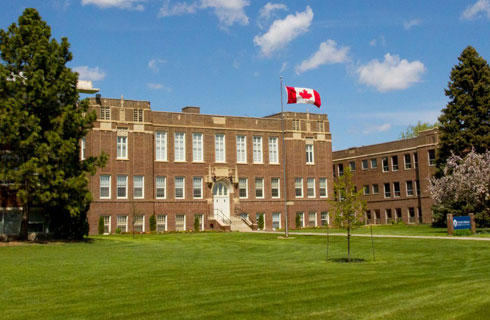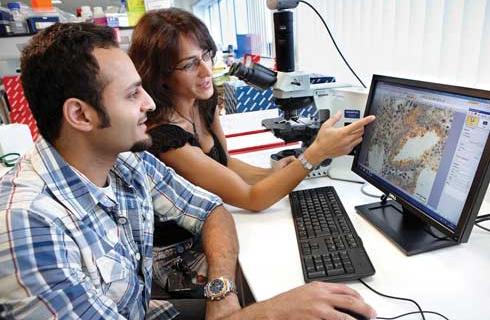Bachelors of Information Technology and Bachelor of Science - Physics [Extended Major]
国际学生入学条件
BInfTech: Queensland Year 12 (or equivalent) General English subject (Units 3 & 4, C); Mathematical Methods (Units 3 & 4, C).BSc: Queensland Year 12 (or equivalent) General English subject (Units 3 & 4, C); Mathematical Methods (Units 3 & 4, C); and one of Biology, Chemistry, Earth and Environmental Science, or Physics (Units 3 & 4, C).
International Baccalaureate Diploma - 32
IELTS overall 6.5; reading 6; writing 6; speaking 6; listening 6. For other English Language Proficiency Tests and Scores approved for UQ
TOEFL IBT - Overall 87, listening 19, reading 19, writing 21 and speaking 19.
展开
IDP—雅思考试联合主办方

雅思考试总分
6.5
了解更多
- 雅思总分:6.5
- 托福网考总分:87
- 托福笔试总分:160
- 其他语言考试:Pearsons - Overall Score of 64 and 60 in all sub bands.
CRICOS代码:042119D
申请截止日期:请 与IDP联系 以获取详细信息。
课程简介
This dual program lets you combine study in advanced information technology with a wide range of majors from the world of science. UQ's Bachelor of Information Technology will set you up for any number of career options working with computers and information, where you can apply your technical skills to solve problems, support innovation and improve communication between people. Topics covered include accounting, economics, law, marketing, business and strategy, and you'll also learn about software engineering, design, mathematics and information systems. The science program offers one of the broadest selections of disciplines in Australia, enabling you to develop your interdisciplinary scientific knowledge and practical skills while pursuing studies that suit your interests and ambitions. You'll also have the chance to gain relevant, real-world experience through employability and work-integrated learning. You'll graduate with highly developed knowledge in your specialist area, superior technical abilities, and advanced independent thinking and communication skills.<br><br> Physics embraces the study of the most basic natural laws and is about explaining how and why things work on scales ranging from the sub-nuclear to the entire cosmos. Physicists explore and identify basic principles governing the structure and behaviour of matter, the generation and transfer of energy, and the interaction of matter and energy. Physicists use these principles in theoretical or experimental studies on topics such as the nature of time and the origin of the Universe; others apply their physics knowledge to practical areas, developing advanced materials, electronic and optical devices, and equipment for a wide range of fields such as medicine, mining, astronomy and geophysics.
展开




































